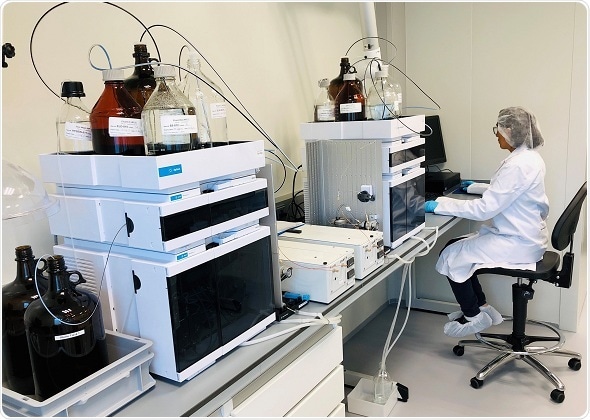Today, Pepscan announced that its GMP production capacity has doubled. Pepscan is an all-in-one partner in peptides, building on 25 years of experience in advancing and applying peptide expertise to facilitate clients in the development and production of peptides. The doubled GMP production capacity enables Pepscan to guarantee short production timelines. It also gives clients the benefit of collaborating with a single expert partner on the way from R&D to the clinic, resulting in maximum efficiency while also saving time. Specifically, researchers active in personalized peptide medicine, where both timelines and flexibility are key, will benefit from these new developments.

Hans de Backer, CEO of Pepscan, explains the new capacity additions.
Earlier this year, we started producing GMP peptides for clinical studies phases 1 and 2, which made it possible to provide peptides for purposes beyond R&D: directly for the benefit of patients. Our new production line, consisting of a new synthesizer, a preparative HPLC and lyophilizer in our cleanroom, and the strengthened QMS and process documentation that were put in place for this, have proven to facilitate the efficient execution of the process. Using this proven concept, we have now doubled the complete production line."
Current production includes both therapeutic peptide projects as well as personalized peptide medicine projects (e.g. neoantigen vaccines).
"Given our role in the field of personalized medicine, short and reliable delivery times are crucial," adds Hanne Kho, Chief Operations Officer of Pepscan. "This demands a set of rigorous processes and a certain level of flexibility that we, together with outstanding product quality, are able to deliver. I'm very proud that the recent GMP customer audits that were conducted have confirmed this."
De Backer continues:
Doubling our GMP production capacity is a major milestone that transforms our newly developed GMP capabilities into a solid pillar of our peptide services portfolio. In the last 25 years, we have built extensive knowledge and a reputation for our expertise in developing and producing peptides, specifically constrained peptides. I'm glad that we are now able to use this expertise to provide peptides for purposes beyond R&D: directly for the benefit of patients."